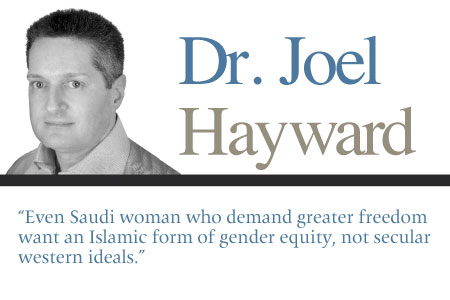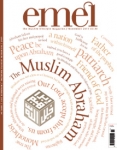
Saudi Women and the Arab Spring
Issue 86 November 2011
The reforms being initiated by King Abdullah of Saudi Arabia are based on Islamic values and should be warmly welcomed.
I gained my driving licence when I was eighteen. So did my sister, who also became eligible to vote that year. We grew up in a western state, which now sits near the top of the Global Gender Gap Report, a meticulously researched study of gender parity published annually by the World Economic Forum. Interestingly, no Muslim states rank in the top 50 nations in terms of the aggregate rating for economic opportunities, educational achievement, health and political empowerment for women. Ranked at 134, Yemen currently sits at the very bottom, but it is only two places higher than Pakistan and five places higher than Saudi Arabia. Other Muslim-majority states dominate the bottom quarter.
“Low-scoring” states insist that such reports are culturally biased and that, far from treating women poorly, they extol women and treat them fairly and properly according to Islamic teachings. External critics disagree, arguing that Islam is patriarchal and misogynistic and holds women in varying degrees of servitude, while the rest of the world has increasingly empowered women politically, economically and socially. Most internal dissidents do not blame Islam, but accuse their own Muslim governments of excess in the way they interpret and impose shari’ah.
Wanting a focal point to symbolise the problem, critics have made much of the fact that in Saudi Arabia, the heart of the Islamic world and the home of the two holy sites, women have been forbidden from what my sister has been doing for almost thirty years: driving a car.
Back in June, the Arab Spring inspired some Saudi women to protest against their limited rights by violating the no-driving rule. Protests like these have occurred intermittently for twenty years, with some activists using this issue to highlight far more serious political, economic and social constraints. The protests have gained media attention but few political concessions—until now.
Saudi Arabia’s King Abdullah has responded to the reforming winds blowing across the Middle East by enhancing the political rights of women. The no-driving rule remains in place (at least for now). Yet, far more substantially, the king has continued the slow, cautious but steady programme of social reform he initiated when acceding to the throne in 2005, by granting Saudi women the right to vote in local elections and to serve as members of the Shura Council, the country’s top advisory body.
King Abdullah explained during a short television broadcast that after conferring with senior religious clerics (whom critics blame most for the slow rate of social reform), Saudi women will be allowed to vote, and stand as candidates in the 2015 local elections. “We refuse to marginalise the role of women in Saudi society and in every aspect, within the rules of shari’ah,” King Abdullah said.
It would be wrong to believe that this step marks the beginning of an imminent or dramatic re-drafting of women’s roles and rights in the Kingdom or the wider region. The new policy is limited in nature and will not take effect immediately. The next municipal elections are four years away and no women will be appointed to the 150-man Shura Council until its current term ends in two years.
Yet no one can deny that this is a significant move, which is likely to be followed by other steps that will gradually increase the rights of women within the Kingdom and probably in those Gulf states (including Yemen and Bahrain) that look to Saudi Arabia for their example.
It is extremely unlikely that Saudi Arabia will move far towards the western model of women’s rights. The Kingdom is deeply traditional and conservative. Even most Saudi women who demand greater freedom want an Islamic form of gender equity in which their religion, not secular western ideals, remains the key philosophy. King Abdullah may not agree entirely with the level of reform they want, but he certainly sees his decision to give women enhanced political representation as being grounded in Islam. “Muslim women in our Islamic history,” he said, “have demonstrated positions that expressed correct opinions and advice,” adding that members of Saudi Arabia’s clerical council praised and supported his decision.
Acknowledging the influence of the Arab Spring, which has left no place “for defeatist or hesitant people,” the King accepted the legitimacy of popular demands for what he called “balanced modernisation which falls within our Islamic values.” His programme of reform might not be rapid, but it is occurring, and we should all welcome this major development.
Dr Joel Hayward is Dean of the Royal Air Force College. These are his personal views only.
Bookmark this |
|
Add to DIGG |
|
Add to del.icio.us |
|
Stumble this |
|
Share on Facebook |
|
Share this |
|
Send to a Friend |
|
Link to this |
|
Printer Friendly |
|
Print in plain text |
|


Comments
0 Comments